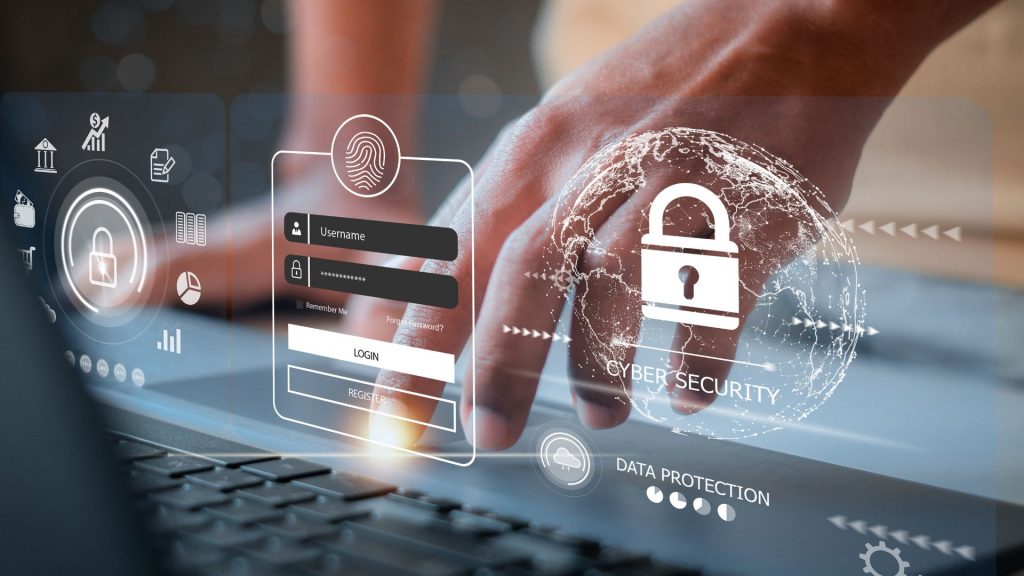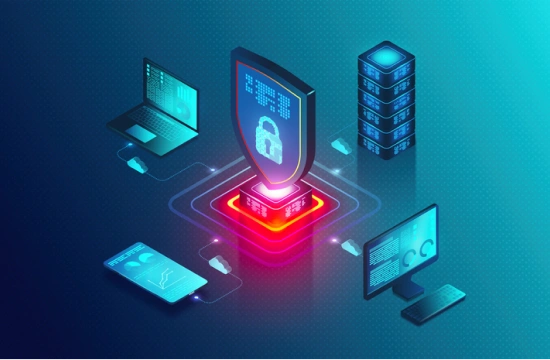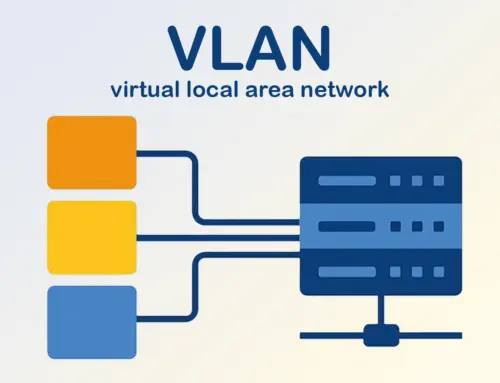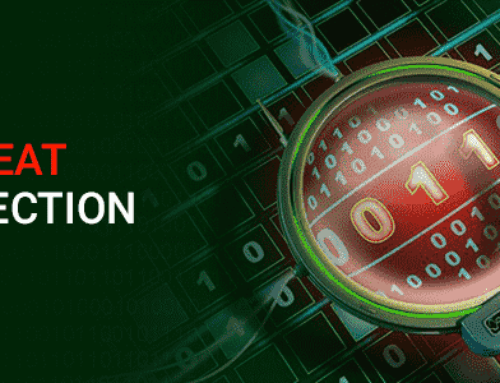
Mastering Endpoint Privilege Management for Enhanced Cybersecurity.
In today’s rapidly evolving digital landscape, safeguarding your organization’s endpoints is more crucial than ever. As enterprises increasingly rely on a myriad of devices to conduct daily operations, mastering endpoint security becomes essential. Endpoint privilege management is a cornerstone of a robust security posture, ensuring that sensitive data remains protected and attackers are kept at bay. By understanding and implementing comprehensive endpoint security measures, organizations can defend against cyber threats and maintain their overall cybersecurity posture effectively, while also addressing privilege security.
Understanding Endpoint Security
What is Endpoint Security?
Endpoint security refers to the practice of securing end-user devices, such as laptops, desktops, and mobile devices, from cybersecurity threats and involves implementing robust endpoint security systems. It involves utilizing security tools and solutions to protect these endpoints against potential attacks, ensuring that the organization’s security posture remains intact and that security professionals are well-informed. By mastering endpoint security, businesses empower themselves with the ability to detect and respond to threats swiftly, thereby minimizing potential damage. Effective endpoint management encompasses a variety of strategies, including privilege escalation prevention and endpoint detection and response.
The Importance of Endpoint Protection
In the face of increasing cyber threats, endpoint protection is vital for safeguarding your enterprise. A robust endpoint security solution helps in minimizing security risks by implementing security patches and maintaining a comprehensive management strategy that includes proactive security measures. Organizations that prioritize endpoint protection are better equipped to anticipate and mitigate cyber risks, ensuring data protection and compliance with security policies. By fortifying your defenses with endpoint privilege management, you can reduce the likelihood of a security breach and protect your organization’s integrity.
Common Endpoint Threats and Attackers
Attackers constantly evolve their tactics to exploit vulnerabilities in endpoint devices, making it imperative for organizations to stay vigilant. Common threats include malware, ransomware, and phishing attacks, which can lead to privilege escalation and unauthorized access. By understanding these security threats, security teams can implement effective endpoint protection measures and close potential security gaps, enhancing their overall data security. Employing a comprehensive security solution that includes threat detection and response, mobile device management, and patch management is crucial for defending against these attackers and ensuring a secure IT environment.
Endpoint Privilege Management
Defining Privilege Management in Cybersecurity
Privilege management in cybersecurity is a critical practice that involves controlling and managing access rights for users and systems within an organization. Teamwin Global Technologica offers advanced privileged access management (PAM) tools, designed to safeguard endpoints by meticulously managing local admin privileges and enhancing privilege security. The Endpoint Privilege tool, known as AdminbyRequest, is a cutting-edge solution available with a free forever license plan for a limited number of desktops and servers. By leveraging such tools, organizations can effectively protect sensitive data from potential breaches and regain control over user privileges, reducing the risk of unauthorized access.
How Privilege Escalation Occurs
Privilege escalation occurs when an attacker exploits a vulnerability to gain elevated access to resources that are normally restricted. This can happen through various means, such as:
- Exploiting software bugs
- Misconfigurations or inadequate access controls
Once attackers achieve higher privileges, they can execute malicious activities, exfiltrate data, or further compromise the system. Understanding the mechanisms behind privilege escalation is vital for implementing effective cybersecurity measures that prevent unauthorized access and protect the organization’s security posture from being compromised.
Best Practices for Managing Endpoint Privileges
To effectively manage endpoint privileges, organizations should adopt a principle of least privilege, ensuring that users only have the access necessary to perform their job functions. By integrating these best practices into their security strategy, organizations can minimize the risk of privilege escalation and enhance their overall security posture. Key practices include:
- Regularly auditing and reviewing access rights
- Implementing multi-factor authentication
- Utilizing advanced privilege management tools
- Providing security awareness training to employees to help prevent accidental privilege misuse is a vital security control.
Mastering Endpoint Management
Effective Endpoint Management Strategies
Mastering endpoint management involves deploying comprehensive strategies that encompass device management, patch management, and threat detection and response. Organizations should implement robust security policies to ensure consistent protection across all endpoints. Regular monitoring and updates are crucial to maintaining the security integrity of devices. By establishing a proactive management strategy, businesses can effectively mitigate security risks, enhance their cybersecurity posture, and ensure the seamless operation of their IT infrastructure.
Modern Endpoint Security Solutions
In today’s cyber landscape, modern endpoint security solutions are indispensable for defending against advanced threats. Teamwin Global Technologica provides robust endpoint security options, integrating solutions like SentinelOne and Crowdstrike to offer advanced protection. These tools incorporate features such as real-time threat detection, endpoint detection and response, and advanced firewalls like FortiGate and Sophos, which are essential for monitoring endpoint activities. By leveraging these technologies, organizations can anticipate and mitigate cyber risks, ensuring comprehensive protection for their endpoints and maintaining their organization’s security posture.
Integrating Privilege Management into Endpoint Security
Integrating privilege management into endpoint security is pivotal for achieving a fortified security environment. By combining robust endpoint protection with effective privilege control, organizations can create a multi-layered defense strategy. This integration not only prevents unauthorized access but also ensures that any attempts at privilege escalation are swiftly identified and mitigated. Teamwin Global Technologica emphasizes the importance of this synergy, empowering its clients to anticipate potential security events and maintain a secure, resilient IT infrastructure.
Defending Against Attackers
Identifying Potential Cyber Threats
In the realm of cybersecurity, proactive threat management is essential to anticipate and mitigate cyber risks effectively. By employing vigilant monitoring and swift response strategies, organizations can stay ahead of potential attackers and effectively manage security events. This approach allows security teams to identify and address cyber threats before they manifest into security incidents, thereby safeguarding the organization’s security posture. Mastering endpoint detection and response is a crucial element in this process, ensuring that any anomalous activities are promptly recognized and addressed by security professionals.
Implementing Security Solutions
Teamwin Global Technologica excels in providing comprehensive security solutions that encompass firewalls, robust endpoint security, and privileged access management (PAM). Their offerings, which include endpoint protection management (EPM) and both passive and active networking capabilities, ensure that organizations are well-equipped to defend against cyber threats while maintaining robust endpoint privilege management. With state-of-the-art enterprise CCTV and biometric systems, along with real-time Dark Web monitoring, Teamwin empowers its clients to fortify their defenses and maintain a strong cybersecurity posture.
Continuous Monitoring and Improvement
Continuous monitoring and improvement are pivotal in maintaining an effective cybersecurity posture. Teamwin offers 24/7 support and monitoring, guaranteeing immediate assistance and reliable solutions whenever needed. This constant vigilance ensures that any potential security gaps are promptly identified and addressed, allowing organizations to enhance their endpoint security measures continuously. By embracing a culture of ongoing improvement, businesses can safeguard their IT infrastructure against evolving threats and ensure their operations remain secure and resilient.
Conclusion
Recap of Best Practices
In mastering endpoint security, organizations must adhere to best practices such as implementing a principle of least privilege, conducting regular security awareness training, and employing advanced privilege management tools. By integrating these strategies into a comprehensive security management framework, businesses can effectively mitigate security risks through robust endpoint privilege management. and protect their digital assets. These practices are essential for maintaining data protection and ensuring compliance with security policies, ultimately fortifying the organization’s overall security posture and aligning with security and compliance requirements.
The Future of Endpoint Security
The future of endpoint security is set to be defined by the advancement of AI-driven threat detection and response technologies. As cyber threats become more sophisticated, organizations must leverage cutting-edge tools and solutions to stay ahead of attackers. By adopting modern endpoint security solutions and continuously refining their security strategies, businesses can anticipate and counteract emerging threats, ensuring the integrity of their IT infrastructure and safeguarding their operations for the future.
Final Thoughts on Mastering Endpoint Security
Mastering endpoint security demands a proactive and comprehensive approach, encompassing robust security measures, effective endpoint management, and continuous improvement. Teamwin Global Technologica remains committed to empowering its clients through state-of-the-art security solutions, ensuring that their infrastructure is secure and resilient against potential threats. By prioritizing endpoint security and adopting a vigilant stance, organizations can safeguard their enterprise, ensuring tomorrow’s success and maintaining peace of mind in an increasingly digital world.
What is endpoint privilege management and why is it important for cybersecurity?
Endpoint privilege management involves controlling and monitoring user access to endpoint devices to ensure that only authorized personnel can perform certain actions. It’s important for cybersecurity as it helps prevent unauthorized access, reduces the likelihood of privilege escalation, and enhances the overall security posture of an organization.
How can mastering endpoint management improve endpoint security?
Mastering endpoint management allows organizations to implement effective endpoint security strategies that ensure consistent application of security policies across all devices. This includes regular security audits and assessments, which help identify vulnerabilities and ensure that security solutions are up-to-date and effective.
What role do security operations centers play in endpoint security?
Security operations centers (SOCs) play a critical role in monitoring and responding to endpoint security incidents. A team of security experts analyzes endpoint behavior, investigates potential security breaches, and coordinates responses to security threats, ensuring that the organization maintains a strong endpoint security posture.
What are some common endpoint security policies to implement?
Common endpoint security policies include enforcing strong password requirements, implementing endpoint encryption, and regularly updating critical security patches. These policies help address security vulnerabilities and ensure that only authorized users have access to sensitive information.
How do identity and access management contribute to effective endpoint protection?
Identity and access management (IAM) is essential for endpoint protection as it ensures that users are authenticated and authorized to access specific resources. By integrating IAM with endpoint security solutions, organizations can better manage user privileges and reduce the risk of bypassing security measures.
What is the importance of continuous security in endpoint management?
Continuous security in endpoint management ensures that security measures are consistently monitored and updated in response to emerging threats. This proactive approach helps organizations maintain a robust endpoint security posture and improve their overall cybersecurity resilience.
How can endpoint security help in preventing data breaches?
Effective endpoint security helps prevent data breaches by implementing multiple layers of security, including antivirus software, firewalls, and intrusion detection systems. These measures help identify and mitigate threats before they can compromise sensitive data, ensuring that security is maintained across all endpoints.
What are the best practices for mastering endpoint privilege management?
Best practices for mastering endpoint privilege management include conducting regular security audits, training staff on security awareness, utilizing endpoint encryption, and continuously reviewing and updating access policies. These practices help organizations enhance security and reduce the risk of unauthorized access to critical systems.







